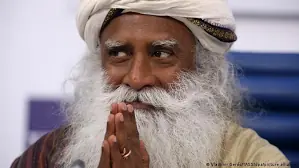
I have seen the other day a video by Sadhguru saying something like this ”There is no such thing as good habits or bad habits… habit means you are functioning unconsciously. If you are functioning unconsciously that is a bad thing.” and then he goes on saying that automatizing your life is the realm of machines and that everything we can do we can do consciously, as humans.
Now … of course that triggered me!
I respect a large chunk of Sadhguru’s wisdom… but just because most of it comes unconsciously – in his terms, “channeled” from a place of intuition or divine teachings . Any person knowing a bit of neuroscience and/or basic brain functioning would know that automatic processes in the brain account for 95% of our actual brain processing power. It is not only impossible consciously all the time but it is useful to function unconsciously. We would be drained of energy in very little time if we would try to process all we need to function as a normal work day consciously.
As documented by the Nobel Award Winner Daniel Kahneman in the book “Thinking Fast and Slow” the brain functioning can be simplified in System 1 (automatic, faster and unconscious) and System 2 (conscious analytical and slower). These were coined by Jonathan Haidt in the book “The Happiness Hypothesis” by the Elephant and the Rider metaphor expressing the difference of power between the two. In simple terms, “the beauty of human beings” as Sadhguru expresses being conscious couldn’t exist without the beauty of being the “unconscious animal” and automatically avoiding a lion attack when our ancestors from Africa had to. A brainstorming and analysis session at that point would have been at least suboptimal if conscious brain processes were on.
Bottom line, there is an invitation I want to make!
This invitation is to take Sadhguru’s advice of being more conscious but take it kindness towards yourself and with a grain of salt. To operate in this complex world it would be neither efficient nor possible if we would try it. If we apply some critical thinking to it, it is an ideal aspiration for spiritual leaders who are actually designing their life around this objective by renouncing the earthly matters and retreating into ashrams, monasteries or even more secluded spaces like the assets.
From another perspective this is adapted to the more complex western world exactly through a system of habits that will allow more awareness in our chosen – as more meaningful – endeavors. Let’s take president Obama for example: he had asked his staff to multiply the same suit for him to wear just to save some energy when deciding on which clothes to wear. Yes, conscious analytical decisions are consuming a lot of energy. Judging by the Sadhguru’s choice of clothing I believe he would disagree :). I am personally more drawn by the systems that other sages are pursuing when dressing consistently in the same manner to save some brain power for sageness.
The world around us is hugely complex. In our business language this is coined by versions of VUCA (volatile, uncertain, complex and ambiguous). It order to manage ourselves (my favorite subject #self #leadership) not only we need to simplify it, we actually have no choice for now. This is the way the brain functions. It forms systems of values, (meta)programs, beliefs, opinions in order to decodify the complexity around and just… function. And these values, programs and beliefs are formed mostly unconsciously and also consciously. They are here to serve and intrinsically for good reasons. A better tag to put on them is not as being bad or good but serving or not serving in a certain life context.
Conclusion: What I am actually proposing is just to engage in a “conscious” process whenever such a sage is oversimplifying the way the world and humans function. Such generalizations as he made in his reel are the pure example of how automatic beliefs are adopted in order to function more unconsciously, and thus more efficiently when believing them. So, my take is “there are such things as good habits and bad habits if you are consciously choosing to tag them that way”. It makes all the sense in the world to try to instill better habits if you choose to but maybe a kinder approach towards yourself is just to tag the as #serving or #not serving.






